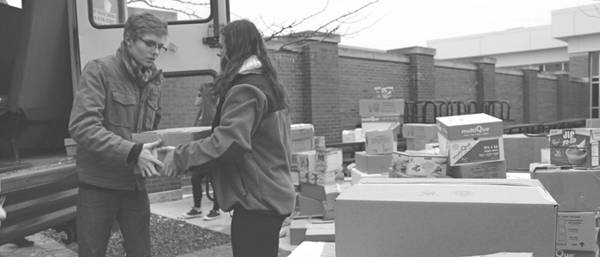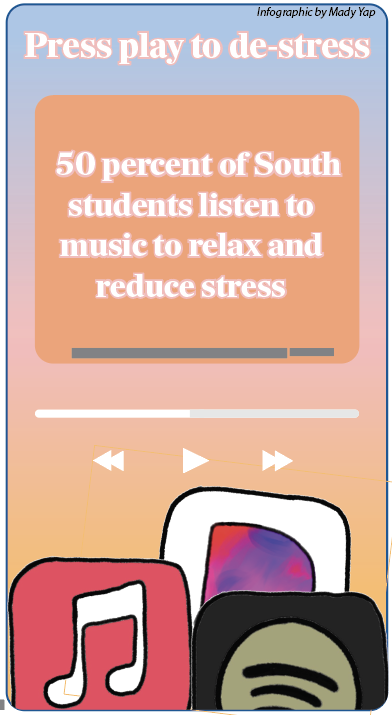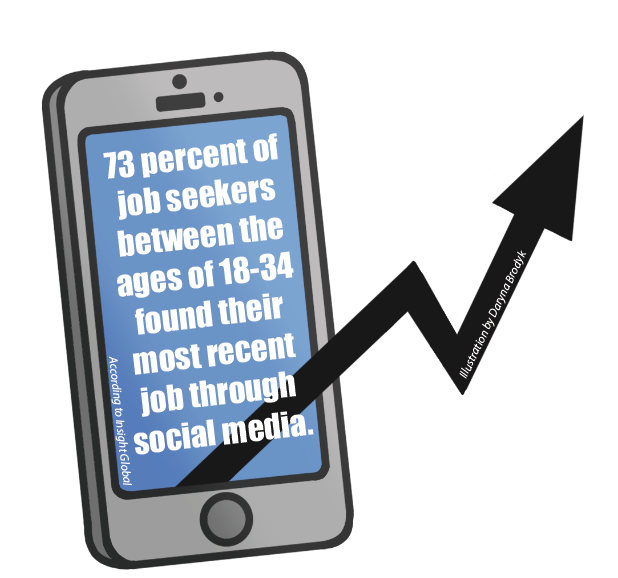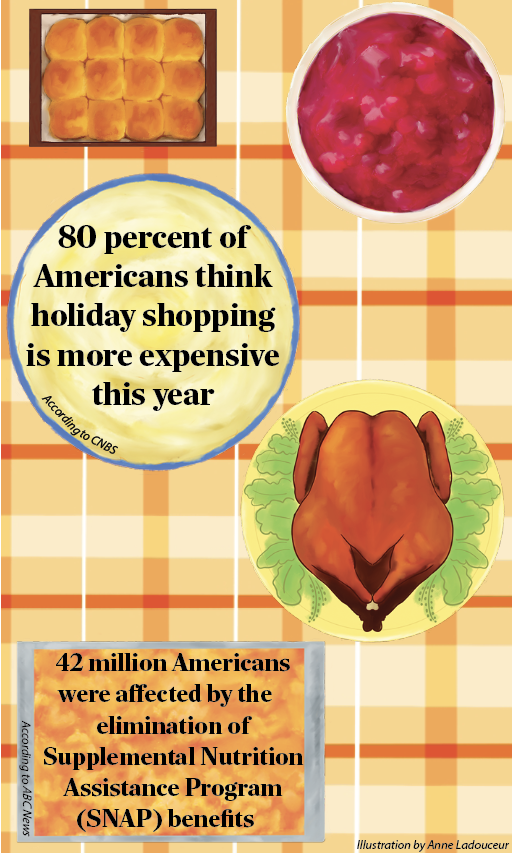For the past five years of the canned food drive, James Shellard, student activities director, has made a call to Glenview State Bank to ask for a donation to round out Student Council’s goal. This is the fact behind that rumor of the “anonymous donor” that float around the school during November. However, this year was different.
Student Council did not ask for assistance from the Bank for the canned food drive, yet some students assume that they did and choose to be vocal about it, according to Hannah Schiller, student body secretary. The Oracle Editorial Board wants to both commend Student Council for their achievement and suggest that members of the South community refrain from spewing comments about the “anonymous donor” unless they’re informed of the reality of the situation.
During the planning stage of this year’s canned food drive, Student Council explicitly resolved to not request a donation from the Bank on the Tuesday before Thanksgiving break, Shellard said.
“This year I said to [Jeffrey Mathew, student body president,] and Student Council, ‘We’re not calling [the Bank],’” Shellard said. “We’re not going there. I made clear from the get-go that we’re not going there because [the Bank] has been so generous that I just can’t continue to ask them every year.”
Transparency regarding the source of donations is the most important way to build the South community’s trust in the Student Council’s efforts. The Student Council worked hard for transparency regarding where the cans came from by reading the totaled donations from clubs on the PA, but then they received complaints from teachers about taking up class time with those announcements, Shellard said.
The disconnect between the student body and Student Council was illustrated on the comment thread of a Facebook post by Kali Croke, junior class president, commending the student body and the Student Council for surpassing the goal of 100,009 cans and clarifying that “there was no bank, no anonymous beneficiary, no student activities check that got us there.” Three South students who commented on the post expressed skepticism regarding the asserted absence of an “anonymous donor,” one writing, “That’s why we spontaneously gained 60000 [sic] cans in two days.” Another student posted, “So how much did glenview state bank [sic] donate again?”
The can total displayed in foot-long red numbers in front of the Student Activities Center made a leap from 80,000 cans on Nov. 21 to 108,213 cans by the end of Nov. 26, and the Oracle Editorial Board believes that students have the right to question the source of these donations. But the key word there is “question.” If the concerned commenters on Croke’s Facebook post had inquired about the source of the 30,000-can surge in the last two days of the drive, they’d know that the combined totals garnered by the auction, Student Council’s “canning” the Glenview community and cumulative club totals are only counted on the last couple of days before the end of the drive.
The assumption that Student Council will simply ask the Bank for the remaining cans at the eleventh hour not only does a disservice to the efforts and intentions of Student Council, it is detrimental to the total proceeds and the members of our community who benefit from them. While walking through the cafeteria with her red cup outstretched for donations, Schiller said she heard multiple students refuse to donate because “a bank is going to give it to us at the end of it anyway.”
The Oracle Editorial Board believes Student Council made the right decision in ending the tradition of requesting a donation from the Bank in order to set an example that a South-centric canned food drive is possible. The expected collective contribution from the South community alone should be around 60,000 cans, Mathew said. The remaining 40,000 cans were projected to come from the auction, the faculty basketball game and donations from the greater Glenview community.
That means that each student would be expected to contribute $5, and students who can afford to give more should do so in order to cover the students who can’t. Especially considering increasing enrollment in the student population, the Oracle Editorial Board considers Student Council’s goal a feasible one to achieve without outside help.
In the coming years, if the school falls short of its goal, we don’t think that Student Council should refrain from calling the Bank as long as the student body is informed about their donations. That would be taking real food from hungry people in our community and real money from charities like the Red Cross and Vital Brides to which we donated a portion of the total this year.
However, it’s clear that new strategies Student Council used to raise the money and cans without the Bank’s help worked, and the returning members should use this year as a model for next. For example, Student Council put greater pressure on auction bidders to follow through with their promised donations. While auctions usually garner around 9,000 cans, this year’s auction delivered around 16,000 out of the 23,000 that were promised by auctions bidders, Mathew said.
One of the reasons that Shellard said he has requested a donation from the Bank for the past five years is that he doesn’t want Student Council’s efforts to be diminished by a missed goal. While we agree that the symbolism of reaching a goal does a great deal to raise spirits, we must remember that if the canned food drive were to have “failed” by not reaching 100,009 cans this year, it would not have been for lack of effort on the part of Student Council but a burden on the entire student body.













